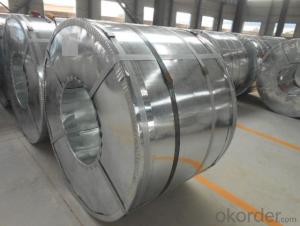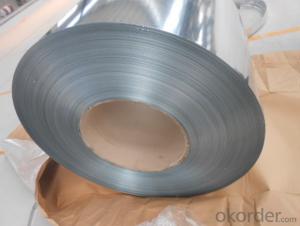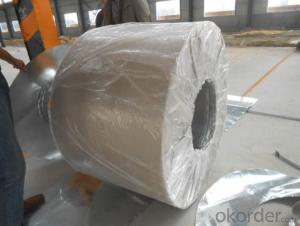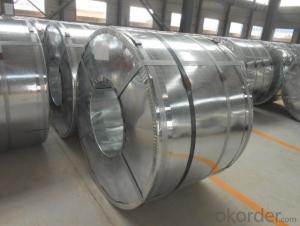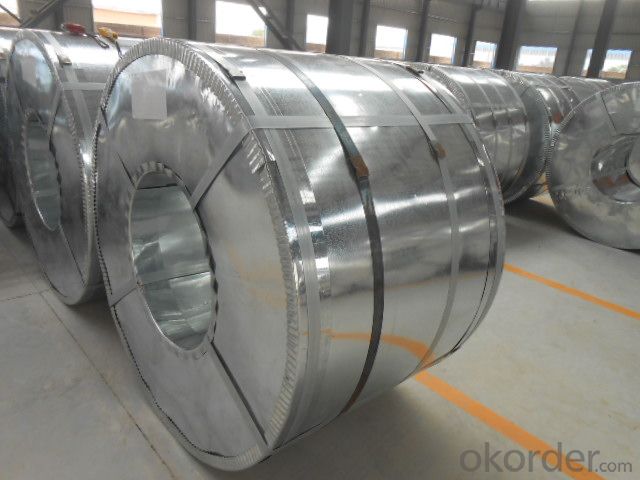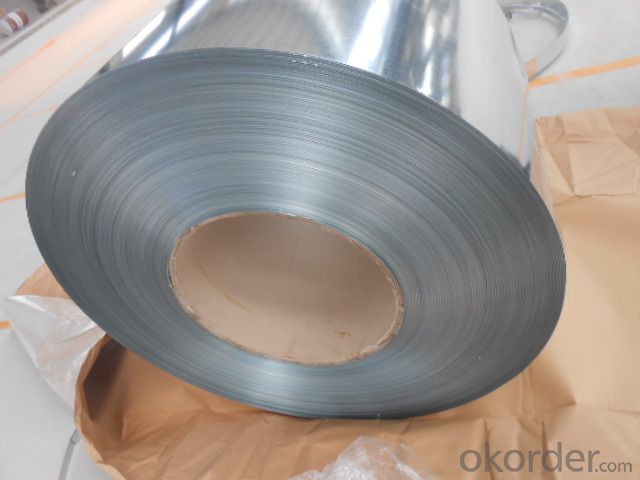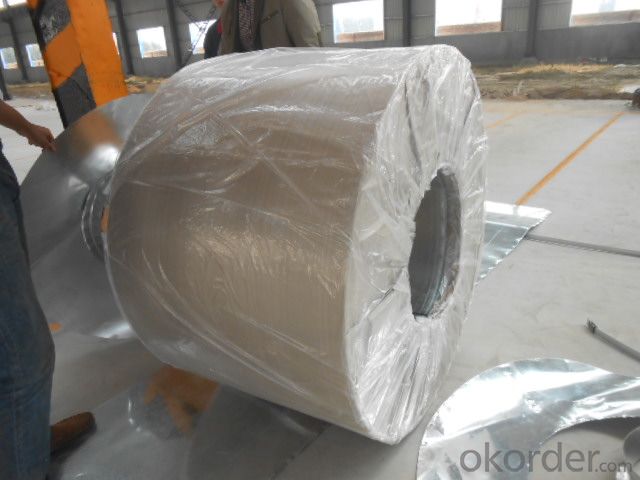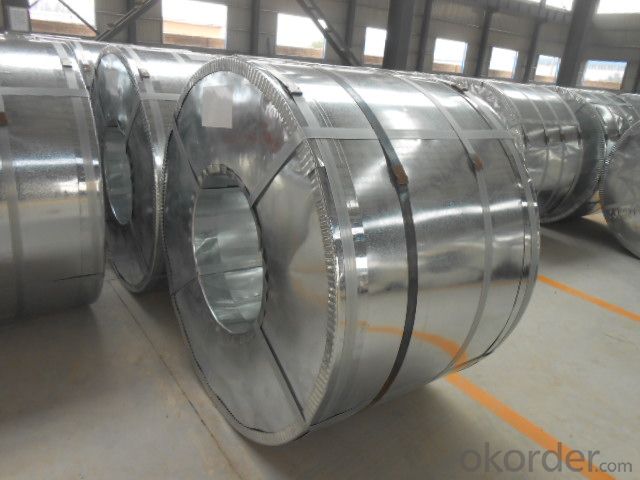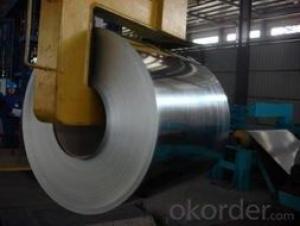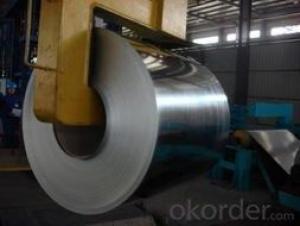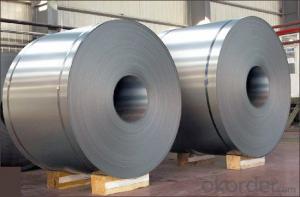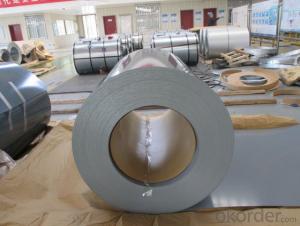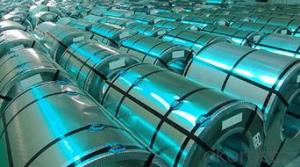JIS G 3302 GALVANIZED STEEL COILS WITH HIGH QUALITY
- Loading Port:
- China main port
- Payment Terms:
- TT OR LC
- Min Order Qty:
- 25.00 m.t.
- Supply Capability:
- 10000 m.t./month
OKorder Service Pledge
OKorder Financial Service
You Might Also Like
Prime Galvanized steel coil
Packaging & Delivery
Packaging Detail: seaworthy export package
Delivery Detail: on request
Specifications
1. more than 10 years’ experience on this field
2. advanced equipments
3. competitive price
4. soonest delivery
Product Description :
Commodity
Hot dip galvanized steel coil
Technical Standard: JIS 3302 / ASTM A653 / EN10143/ GB/T 2518
Grade:DX51D/ S250,280,320GD,SGCC,SGHC,SGH340,SGH400,SGH440,G450,G550
Types:Commercial / Drawing / Deep Drawing / Structural quality
Width: 900mm/1000mm/1219mm/1200mm/1220mm/1250mm
Thickness: 0.2mm~4.0mm
Type of coating: galvanized
Zinc coating: Z40-275g/m2,Z40-Z450g/m2
Surface treatment: zero spangle / regular spangle/ big spangle
ID coil: 508mm or 610mm
Coil weight: 3-10/MT per coil
Package: Properly packed for ocean freight exportation in 20''container
Application:: home appliances, constructions, building, machineries
Our Advantages :
1. Expertise:
More than 10 years of manufacture: we know how to properly handle every step of production.
2. Competitive price:
We can offer competitive prices to our customers.
3. Accuracy:
We have excellent technicians and leaders, which can ensure our products are exactly what you want.
4. Materials:
All galvanized steel coils are made of high-quality raw materials.
5. Certificate:
Our products are certified by ISO9001.
6. Productivity:
We have large-scales of production lines,, which can guarantee all your orders will be finished in earliest time.
Hr CGL Technical Process:
Coil loading-> uncoiling-> cutting-> welding-> entry accumulator-> Heating and deoxidization-> galvanizing-> air cooling->water quenching-> air dryer-> tension leveler-> Passivation->air dryer->exit accumulator-> oiling-> cutting-> recoiling->coil unloading-> packing
The furnace heating style: improved Sendzimir heating technology
Hourly output: max.76.3t/h
Process after coating: tension leveling, Passivation or oiling
Our Service
Our quality
Test Equipments of Prepainted Galvanized Steel Coil : Salt-spray tester; Atomic absorption spectrophotometer; Rockwell typer hardness tester; Tensile test machine; Metrohm titration; Laboratory Bend test machine.
Our packing
Properly packed for ocean freight exportation in 20''container, galvanized metal fluted rings on inner and outer edges, galvanized metal & waterproof paper wall protection disk, galvanized metal & waterproof paper around circumference.
R&D department
R&D department concentrates on researching and developing reliable products with best quality. The quality department test and control every process of production to guarantee the best quality of products
- Q: How are steel coils processed and shaped into specific products?
- The production of specific steel products involves a series of steps and techniques using different machinery. Initially, steel coils are unwound and flattened using a decoiler and a leveller. This prepares the coils for further processing. Next, the flattened coils are fed into a rolling mill where they undergo cold rolling. This process involves passing the coils through rollers to reduce thickness, improve surface finish, and enhance strength and hardness. After cold rolling, additional processes like annealing or galvanizing may be applied depending on the desired properties of the final product. Annealing involves heating the coils to a specific temperature and slowly cooling them to relieve internal stresses and improve ductility. Galvanizing, on the other hand, involves coating the coils with a layer of zinc to protect against corrosion. Once these treatments are completed, the steel coils are ready to be shaped into specific products. This can be achieved through cutting, stamping, or forming. Cutting involves trimming the coils into desired sizes or lengths using shears or lasers. Stamping involves using a die and press to shape the coils into intricate designs or patterns. Forming, on the other hand, involves bending or shaping the coils with specialized machinery to create curved or contoured products. Finally, the shaped steel products are inspected for quality and undergo any necessary finishing processes like painting or coating. This ensures that the products meet required specifications and are ready for distribution or further assembly. In conclusion, the transformation of steel coils into specific products involves a combination of steps including unwinding, flattening, cold rolling, annealing or galvanizing, cutting, stamping, forming, inspection, and finishing. Each step is essential in producing high-quality steel products used across various industries.
- Q: How is the thickness of a steel coil measured?
- The thickness of a steel coil is typically measured using a gauge, which is a specialized tool specifically designed for measuring the thickness of materials. The gauge is pressed against the coil, and the reading on the gauge indicates the thickness of the steel.
- Q: What are the different types of steel coatings used on coils?
- There are several types of steel coatings used on coils, including galvanized, galvannealed, and organic coatings. Galvanized coatings involve applying a layer of zinc to the steel surface, providing excellent corrosion resistance. Galvannealed coatings involve a two-step process where the steel is first galvanized and then heated to form an alloyed surface layer, offering enhanced paint adhesion and weldability. Organic coatings, on the other hand, use paints or other protective coatings to provide corrosion resistance and aesthetic appeal.
- Q: What are the different methods of engraving steel coils?
- There are several methods of engraving steel coils, including laser engraving, chemical etching, mechanical engraving, and electrochemical etching. Each method involves different techniques and tools to create precise and permanent markings on the surface of the steel coils.
- Q: How are steel coils used in the production of electronic devices?
- Steel coils find extensive application in the production of electronic devices, serving various purposes. One prominent utilization lies in the manufacturing of transformers and inductors, which constitute essential components in numerous electronic devices. These components comprise a coil of wire wound around a core, with steel coils often serving as the core material due to their magnetic properties. The magnetic properties of steel contribute to amplifying the magnetic fields generated by the coils, facilitating effective energy transfer and voltage regulation. Steel's magnetic attributes, such as high permeability and low hysteresis loss, make it an ideal material for such applications. Furthermore, steel coils are also integral to the production of printed circuit boards (PCBs). PCBs, acting as the backbone of most electronic devices, consist of a flat, non-conductive board like fiberglass, adorned with a thin layer of copper traces etched onto it. These copper traces establish the electrical connections between different components on the board. Steel coils play a role in the PCB fabrication process, specifically in the creation of stencils. These stencils are employed to apply solder paste onto the board before component placement. Laser-cut steel coils give rise to accurate and consistent stencil patterns, ensuring precise solder paste application. To summarize, steel coils fulfill a crucial function in the production of electronic devices. They are employed in the manufacturing of transformers and inductors, enhancing energy transfer and voltage regulation through their magnetic properties. Additionally, steel coils contribute to the fabrication of PCBs by creating stencils for solder paste application. Overall, the use of steel coils guarantees the efficient and dependable operation of electronic devices.
- Q: What are the different types of steel coil finishes?
- There are several different types of steel coil finishes, including hot rolled, cold rolled, galvanized, and coated finishes.
- Q: I was wondering whether anyone knew if painted steels rusts at the same speed as steel that isn't painted. Also, does steel rust quicker than aluminium?Thank you
- Painted Steel
- Q: How are steel coils protected from condensation?
- Steel coils are protected from condensation through a variety of methods including the application of moisture-resistant coatings, the use of desiccants or drying agents, and the implementation of proper storage and handling techniques such as maintaining appropriate temperatures and humidity levels.
- Q: I wrote in my assignment that mild steel has a high carbon content (4%).This is why it has its strong and rigid properties.. is this correct?
- yes it does
- Q: How are steel coils used in the appliance industry?
- Steel coils are used in the appliance industry to manufacture various components such as outer panels, frames, and internal structures of appliances like refrigerators, washing machines, and ovens. The coils are processed to create specific shapes and sizes, providing strength, durability, and stability to the appliances.
Send your message to us
JIS G 3302 GALVANIZED STEEL COILS WITH HIGH QUALITY
- Loading Port:
- China main port
- Payment Terms:
- TT OR LC
- Min Order Qty:
- 25.00 m.t.
- Supply Capability:
- 10000 m.t./month
OKorder Service Pledge
OKorder Financial Service
Similar products
Hot products
Hot Searches
Related keywords
